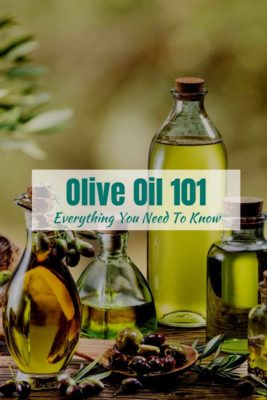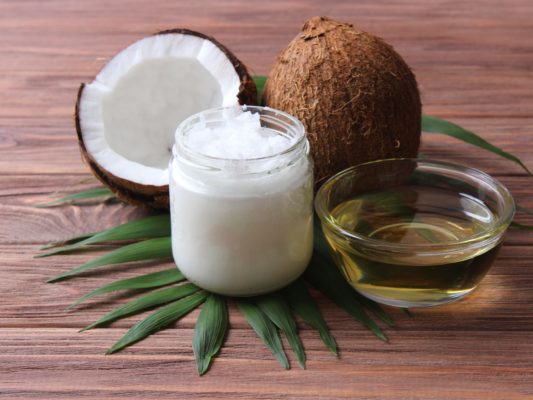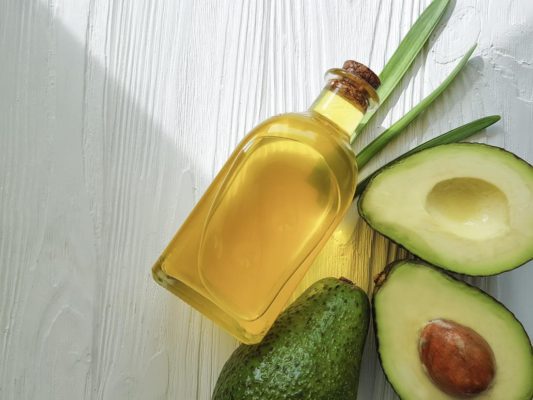W3The healthiest cooking oils for weight loss and how to use them Cooking oil for weight loss!

W3The healthiest cooking oils for weight loss and how to use them
Cooking oil for weight loss!
let’s put it straight, oil-free cooking doesn’t taste as good as dishes cooked in oil. Not only taste, meals cooked in oil also increase our feeling of satiety. While we always keep an eye on the kind of foods we eat when trying to lose weight and also the amount of oil we use, we hardly pay any attention to the type of cooking oils used in preparing it. This is where we make the biggest mistake.
Oils are a mixture of both saturated and unsaturated fat. They say you should avoid fat to shed kilos, but not all types of fats are bad for you. Learn here which oils you can add to your diet to maximize your weight loss effort.

Olive oil
Both extra virgin olive oil and pure olive oil are considered excellent for cooking food, especially when your aim is to lose weight. Both the oil contains a sufficient amount of monounsaturated fat and saturated fat. Many studies suggest that olive oil is excellent for heart health.
Health experts are big proponents of this cooking oil. But does that mean you should be drinking olive oil to lose weight? It does not. Olive oil does not burn fat. It has no chemical properties that will magically dissolve the calories in that tiramisu you had for dessert.
Taking a spoonful of olive oil before a meal, as some fad diets suggest, simply acts as a laxative, which plays to the mistaken belief that the faster food moves through you, the fewer calories your body will become perfect.

Canola oil.
Canola oil contain lesser amounts of antioxidants as compared to olive oil. This oil contain a decent amount of monounsaturated fats and has a little amount of omega-3 fats, which is good for health. Canola oil is good for frying and sauteing.
When it comes to canola oil for weight loss, one randomized, controlled study of 100 people found that a diet including canola oil may help people lose belly fat, especially if they have obesity. The participants drank canola oil in a smoothie each day for a month, and at the end of that time, they had lost about a quarter pound of belly fat. The results were published in 2016 report.
Canola oil is popular for cooking because it has a medium-high smoke point, like extra-virgin olive oil, but has a milder flavor. Like any oil, it should be used in moderation.

Coconut oil
In spite of the presence of saturated fat, this oil is excellent for weight loss.
Coconut oil is a vital source of medium-chain triglycerides (MCTs). Studies also show that coconut oil can help you lose weight and even has some surprising health benefits. Coconut oil contains 6 percent monounsaturated fat and 87 percent saturated fat.
While using coconut oil in moderation isn’t likely to cause weight gain, it’s unlikely to help you lose weight, according to the Mayo Clinic.

Avocado oil
Avocado oil is another excellent choice for cooking your food when you are trying to shed kilos. It has a higher smoking point and can be used for stir-frying and cooking on high flames.

Nuts and seed oils
Some nuts and seed oils are also high in monounsaturated fats and can be used for cooking purposes.
Hazelnut oil contains 82 percent of monounsaturated fat, with just 7 percent of saturated fat.
The sunflower seed oil contains 79 percent monounsaturated fat and 14 percent saturated fat.
Almond oil contains 65 percent monounsaturated fat and 7 percent saturated fat.
Flaxseed Oil
Flaxseed oil shares many of the health benefits of the actual flaxseed, such as plant-based omega-3s and monounsaturated fats. In fact, flaxseed oil has the highest levels of omega-3s compared to all other cooking oils: A tablespoon has more than 7 grams, according to the USDA. For the sake of comparison, a 3-ounce serving of cooked salmon has about 2 grams of omega-3s.
While flaxseed oil is considered a healthy oil, it should not be used when cooking with heat because of its high ALA content. It’s best for enjoying as a dressing or for dipping. In fact, it is recommended to keep the oil refrigerated to prevent it from going rancid. Flaxseed oil is available in pill or supplement form, which some people take for weight loss. Because the omega-3s in flaxseed are anti-inflammatory, some research suggests flaxseed may help with weight management.
One small April 2012 study in Appetite found that participants who consumed flaxseed in different forms (with 2.5 g of fiber) experienced increased feelings of satiety and ate fewer calories compared to the control group. Additional research, including one February 2018 meta-analysis in Nutrition Reviewexamines the ability of whole flaxseed to improve glycemic control, which can help balance insulin and blood sugar levels — two things that are associated with healthy weight management.
Saffron Oil
Should you consider saffron oil for weight loss? You may value saffron for the flavor it adds to foods, but there’s some preliminary evidence that the essential oils that give saffron its distinct aroma and color — safranal and crocin — may also be helpful to someone on a weight-loss diet.
A randomized, placebo-controlled, double-blind study from May 2010 in Nutrition Research looked at the effects of a saffron extract supplement made with the essential oils on appetite and snacking in a group of women overweight. The women were asked to keep a food diary but were not told to restrict food intake. The researchers found that the women taking the supplement snacked less and lost more weight than the control group While this study may be promising for those looking to lose weight, more research is necessary.
There are health risks associated with taking saffron oils in supplement form. In amounts of 5 grams or more, saffron can be toxic; at 20 grams, it can be fatal, according to June 2015 findings in Drug Research.

Sesame oil:
Sesame oil has medicinal and cosmetic uses as well. Sesame oil is derived from raw pressed sesame seeds also known as til in Hindi. It has two powerful antioxidants called sesamol and sesamol that have a good effect on overall health. It also contains anti-inflammatory properties which protect the body from various diseases.
As sesame oil is rich in unsaturated fat, it’s considered to be a heart-friendly oil. It contains plenty of omega-6 fatty acids which are helpful in preventing various heart diseases. Just like olive oil, sesame oil can be applied topically on skin and hair. It is beneficial to treat scars and acne. It also has moisturizing properties and can be used on hair and scalp.

Grass-fed Ghee:
Ghee or clarified butter has rich conjugated linoleic acid and medium-chain fatty acids (MCTs) that inhibit the storage of fat in the body.

Almond oil:
Almonds are the edible seeds of the Prunus dulcis tree, more commonly known as the almond tree.
Although almonds are commonly referred to as nuts, they’re actually the seeds found at the center of the almond fruit, which closely resembles a peach
Almonds can be consumed whole, ground into flour, and even made into non-dairy milk.
They are very rich in fat, making them a perfect source of oil.
Sweet almonds are the variety typically eaten and used to make foods, oils, and cosmetics.
his method negatively affects the nutritional value of the oil, as many of the nutrients found in raw almond oil are destroyed during high-heat or chemical treatments.
While this method results in a less nutritious oil, refined almond oil can withstand much higher temperatures and is less expensive than the unrefined type, making it a more cost-effective option for consumers.
A diet rich in healthy fats may help you lose weight.
Many people avoid fats when they’re trying to drop pounds, but consuming the right kinds of fats can be beneficial for weight loss.
A diet that includes a healthy amount of whole almonds has been shown to help people shed excess weight. Likewise, adding almond oil to your diet may help you lose fat.
Almond oil is rich in vitamin E and unsaturated fats. Adding almond oil to your diet may promote heart health, aid weight loss and keep blood sugar levels stable.
Diets rich in monounsaturated and polyunsaturated fats have been shown to decrease body fat and promote weight loss.

